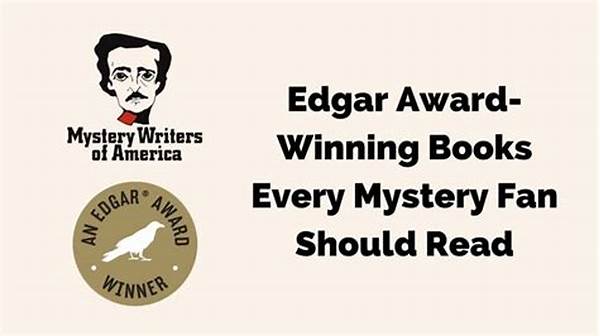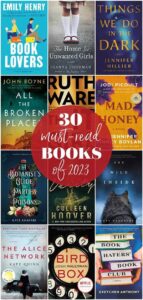In a quiet corner of a world bustling with noise, there exists a metaphorical library filled with tales crafted by the hands of Nobel laureates. These storytellers, through their acclaimed novels, have taken readers on journeys beyond their wildest imaginations. They have shown us the complexities of the human soul and painted panoramas of societies both familiar and strange. It is this rare ability to transcend the ordinary and touch the extraordinary that earmarks a novel as one of the countless acclaimed novels from Nobel recipients. Our journey today delves deep into the intriguing, vibrant landscapes painted by these literary giants.
Read Now : Implementing Daily Storytelling Routines
The Timeless Influence of Nobel-Winning Literature
Imagine, if you will, a tapestry woven with threads not of yarn, but of words and imagination. Such is the experience of reading acclaimed novels from Nobel recipients. With each page, you find yourself sliding deeper into stories that stand the test of time, stories penned by those who have peered into the depths of the human condition.
Take Gabriel García Márquez, whose “One Hundred Years of Solitude” transports readers to the mythical town of Macondo, where the line between magic and reality blurs. His narrative dances around the delicate line between truth and illusion, reminding us that our perceptions shape our reality. Meanwhile, Kazuo Ishiguro’s “Never Let Me Go” offers a haunting exploration of destiny and humanity that leaves an indelible mark on the soul. Such acclaimed novels from Nobel recipients do not merely entertain; they enlighten, provoke, and transform.
In an ever-evolving literary landscape, these works hold their ground. They challenge societal norms, urge introspection, and inspire change. The brilliance of these representations lies not only in their masterful storytelling but in their enduring capacity to connect with readers across generations. As Nobel laureates continue to pen captivating narratives, they gift us with stories that resonate in eternity.
Voices That Echo Through Time
Once upon a time, in the world of acclaimed novels from Nobel recipients, Toni Morrison’s “Beloved” emerged—a tale of love and loss that wraps its tendrils around your heart.
Across oceans, Orhan Pamuk painted Istanbul with words in “My Name is Red,” merging mystery with the eloquence of history.
In a quiet room, Doris Lessing wove “The Golden Notebook,” speaking truths of womanhood and independence that echoed through the years.
V. S. Naipaul’s “A House for Mr Biswas” explored identity’s labyrinth, its intricate pathways mapped by struggles and triumphs.
From the pen of J. M. Coetzee came “Disgrace,” a confronting dialogue on race and redemption in post-apartheid South Africa, leaving readers to grapple with its rawness.
Unraveling the Magic of Nobel Laureate Prose
Imagine yourself seated by the fire on a chilly evening, a cup of steaming tea nestled in your hands. As the fire crackles, you open the pages of an acclaimed novel from a Nobel recipient and are drawn into a realm where time ceases to exist. These stories, penned by masters of the craft, are more than just books—they are windows into the eternal truths of humanity.
Elie Wiesel, with “Night,” plunges readers into the somber depths of the Holocaust, a chilling call to remembrance. His prose is a haunting melody, echoing the silence that follows human suffering. Wiesel transforms pain into a beacon of hope, leaving us with the realization of resilience and the strength therein.
Likewise, José Saramago’s “Blindness” paints a surreal yet poignant picture of society’s breakdown. The allegorical tale is a reflection, a distorted mirror showing truths that are uncomfortable yet necessary to confront. Acclaimed novels from Nobel recipients often insert readers into these parallel worlds, pushing the boundaries of their comfort zones and forcing self-examination.
Living Legacies: The Resounding Impact of Nobel Literature
The words in acclaimed novels from Nobel recipients linger, like whispers on the wind, long after the final page turns. This impact is no accident; it’s the intentional weaving of narrative threads that resonate on a deeply personal level.
1. These novels enter the mind, reshaping perspectives with each thought-provoking line, leaving readers changed.
2. The characters crafted by laureates often live beyond their stories, embodiments of struggles that readers identify with and learn from.
3. Societal constructs, challenged and dissected, find their scrutiny within these pages, prompting reflection and discourse.
4. Through storytelling alchemy, universal themes of love, conflict, and reconciliation emerge, striking chords within global audiences.
5. As recipients of the Nobel Prize, these authors are torchbearers, guiding us toward a more understanding and empathetic world.
6. Such literature transcends linguistic boundaries, speaking the universal language of human experience and emotion.
7. Readers find mirrors within these stories, reflections of their own lives and aspirations in the tales of others.
Read Now : “the Future Of Artificial Intelligence”
8. The dialogues between the past, present, and future are woven seamlessly into these timeless narratives.
9. Acclaimed novels from Nobel recipients are testaments to resilience, the power of the human spirit, and the quest for truth.
10. At their core, they are a call to action, a gentle nudge urging us to see the world with renewed clarity and hope.
Threads of Imagination: Weaving Narratives of Meaning
In every era, champions of penmanship emerge to reclaim the landscape of storytelling with their unique voices. These are the authors of acclaimed novels from Nobel recipients, who string together riveting narratives that defy convention and spark revolutions in thought.
Once, beneath the vast African skies, Nadine Gordimer penned “Burger’s Daughter.” Her storytelling became an anthem of social change, calling for justice against the tide of apartheid. Her prose wasn’t just ink on paper—it was a rallying cry that echoed across continents and securely lodged itself in the conscience of humanity.
Then, there is the lyrical beauty of Wislawa Szymborska, whose poetic verses delve into the most profound aspects of life. While she was renowned for her poetry, her impact on storytelling is undeniable—demonstrating that the brevity of a poem could encapsulate the depth of a novel. Her words remind us that storytelling transcends forms, and its resonance is felt regardless of its length or genre.
Authors like these do not merely narrate stories; they weave them into the fabric of our reality. Every acclaimed novel from Nobel recipients holds a purpose beyond entertainment. It is a testament to human endurance, a celebration of the human experience, and a map guiding us toward a more enlightened path.
Summoning Stories of the Past: A Tapestry of Nobel Laureate Prose
As the golden sun fades on another day, the power of narrative remains an unyielding force, binding us to our past and propelling us into an uncharted future. Through the celebrated narratives of acclaimed novels from Nobel recipients, we are reminded of this connection—a shared lineage bound by imagination and experience.
Lighting the path is William Faulkner, whose Southern Gothic tales uncover layers of complexity in the American South. His “The Sound and the Fury” delves into family dynamics and societal expectations, unraveling the tapestry of human nature with stark honesty and prose as intricate as a spider’s web.
Meanwhile, in Japan, a quiet contemplation is found in Yasunari Kawabata’s “Snow Country.” His words carry readers like a gentle stream, arriving at meditations on beauty and life’s ephemeral nature. Such acclaimed novels from Nobel recipients offer a reprieve from the chaos of modern society, inviting readers into worlds that insist upon stillness and reflection.
The legacy of these laureates is palpable; their stories touch a nerve that resonates across generations. Each page turned is a step further into a journey that ignites curiosity and awakens dormant parts of our humanness. The discourse they generate continues to weave the tapestry of literature—a living record of the stories that shape us, define us, and ultimately connect us.
The Luminary Novelists of Nobel Pedigree
Gather round the hearth of literature, and let us recount the stories spun by the luminary novelists of our time—acclaimed novels from Nobel recipients that have become cornerstones of global cultural heritage. Their narratives stand as beacons of light in both the dazzling and daunting corridors of human history.
An old tale regaled us with the solemn beauty of John Steinbeck’s “The Grapes of Wrath,” a saga of endurance during the Great Depression that immortalized the struggles of many.
Then, we journeyed to the land of the rising sun, where Kenzaburō Ōe in his novel “A Personal Matter,” painted a personal struggle with exquisite vulnerability.
Through Alice Munro’s short stories, we peered into the intricacies of ordinary lives, captured with an observant eye and a compassionate heart.
Lastly, in the simple yet profound “My Name is Red,” Orhan Pamuk wove a rich historical narrative with colors more vivid than any artist’s palette.
These acclaimed novels from Nobel recipients act as our guides, illuminating paths often obscure, through their timeless wisdom in the form of compelling stories.









